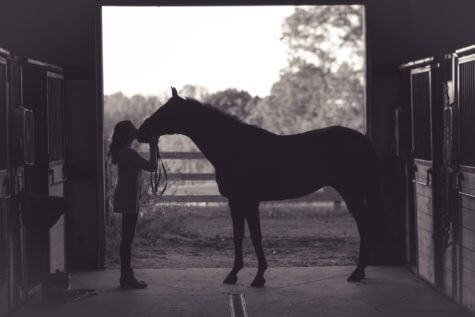SUSSEX, England — Horses can tell whether you’re confident or insecure, even if they’ve never laid eyes on you before, a new study finds.
Researchers at the University of Sussex in the United Kingdom conducted an experiment with 30 horses, hoping to see whether their behavior could be influenced by a human’s posture.

Postures demonstrated by the researchers included those indicating dominance (an individual standing straight, arms and legs spread apart, and chest stuck out), submissiveness (an individual slouching, keeping arms and legs close to the body, and bending their knees), and neutrality.
Despite conditioning the horses to expect food rewards when approached by an individual with a neutral posture, the researchers found that the equines naturally gravitated more toward individuals displaying submissive postures than dominant ones.
“Horses are often thought to be good at reading human body language based on anecdotal evidence such as the ‘Clever Hans effect,’” says Amy Smith, the study’s co-author and a psychology doctoral student, in a university release. “However, little research has tested this empirically. These results raise interesting questions about the flexibility of cross-species communication.”
Dr. Leanne Proops, another co-author adds, “Evolutionarily speaking, animals— including humans— tend to use larger postures to indicate dominance, or threat, and smaller postures to indicate submissiveness. Horses may therefore have an instinctual understanding of larger vs. smaller postures.”
Put another way, it is safe to assume that horses feel threatened or intimidated by those who seem as if they’ll act an aggressive or domineering fashion.
Ultimately, this study provides critical evidence that horses may have an innate ability to accurately evaluate human body language, complementing their comprehension of general human behavior.
“Results like these encourage us to be more conscious of the signals we exhibit when interacting with horses and other animals to facilitate a smooth animal-human relationship,” notes Clara Wilson, a student co-author.
Combined with recent research into horses’ ability to detect facial cues, we may finally have a better view into what makes horses tick.
The study’s findings were published in October in the journal Animal Cognition.

I don’t know much about horses but I know this. Dogs are the same, cats to an extent…
Everybody at all familiar with domestic animals — and likely wild animals, mammals at least — knows this.
No one including horses want to be around someone aggressive. So it pays to recognize them.